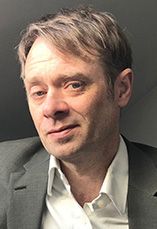Music Therapy Shows Promise for Stroke Rehabilitation in Feasibility Study
New data from a team of European investigators suggest Neurologic Music Therapy could have benefits for patients recovering from a stroke event.

Alex Street, PhD
While sometimes discussed as an abstract idea, results of a new study from a team of European investigators suggests music therapy could have tangible, real-world benefits for patients recovering from a stroke.
Results of the feasibility study, which examined patients undergoing Neurologic Music Therapy (NMT) 2 days per week over a 2-year period, found the therapy to be helpful and could lead to improvements in engagement and patient mood.
"Our study found that Neurologic Music Therapy was received enthusiastically by patients, their relatives, and staff,” said Alex Street, PhD, a senior research fellow at the Cambridge Institute for Music Therapy Research, in a statement. ”The fact 675 sessions were carried out in 2 years is in itself an indication of the success of the treatment.”
In an effort to expand on what is known about the feasibility and acceptability of NMT in a clinical setting, Street and a team of colleagues sought to evaluate feasibility through a single cohort study that included 177 patients from the Addenbrooke’s Hospital stroke rehabilitation unit. Through the use of questionnaires, investigators obtained feedback and rating on whether or not NMT was perceived as helpful or not from patients, relatives, and staff.
Responses for questionnaires ranged from 1 (not helpful) to 4 (very helpful). Individuals included in NMT sessions also completed a Visual Analogue Mood Scale (VAMS) before and after each session.
NMT treatment referrals included a number of different conditions and patient types. Individuals could have undergone sensorimotor exercises, cognitive training exercises, and exercises for speech—investigators noted all exercise was adapted for goals specific to each patient. Additionally, an iPad with touchscreen instruments was used to facilitate a range of exercises for finger dexterity.
A total of 201 patients were referred to NMT over the 2-year period—24 of which did not receive NMT as they were discharged before time become available. The mean age of the study population was 73.23 (16.67) years, 43.5% were female, and the mean number of sessions per patient 4.8 (6.06). Most of the referrals to NMT came from speech and language therapy (89%) and physiotherapy referrals (75%) were also common.
When surveyed, patients (n=99) reported finding NMT sessions helpful with a mean rating of 3.34 (0.825) for the questionnaire. Similarly, 13 relatives surveyed indicated they also found the NMT sessions to be a helpful part of stroke rehabilitation with a 3.84 (0.375) rating for the questionnaire.
Staff memembers were asked what they thought of NMT as an intervention for patients and what they thought of NMT as part of a multidisciplinary team—results indicated similar responses with a 3.81 (0.388) rating for the first question and a 3.85 (0.355) rating for the latter. When examining VAMS data, investigators observed a non-significant reduction in “Sad” (7.5, CI: 2.1-12.9, P = .007) and an increase in “Happy” (+6.2, CI: −11.0 to −1.4, P = .013).
While they purported the results of their study clearly demonstrate the need for further evaluation of music-based interventions and NMT, investigators also noted multiple limitations within their study. Limitations included missing VAMS data, the effect of NMT on functional outcomes were not measured, and staff may have had more grasp of mechanisms of music interventions due to training, among others.
“(Staff) felt that the exercises appear less clinical, because the patients are playing music with the music therapist, and they are receiving immediate feedback from the exercises, through the sounds they create,” Street said in the aforementioned statement. “Further research is necessary to establish potential effects of music therapy on recovery rate and length of hospital stay."
This study, “Neurologic music therapy in multidisciplinary acute stroke rehabilitation: Could it be feasible and helpful?,” was published in Topics in Stroke Rehabilitation.